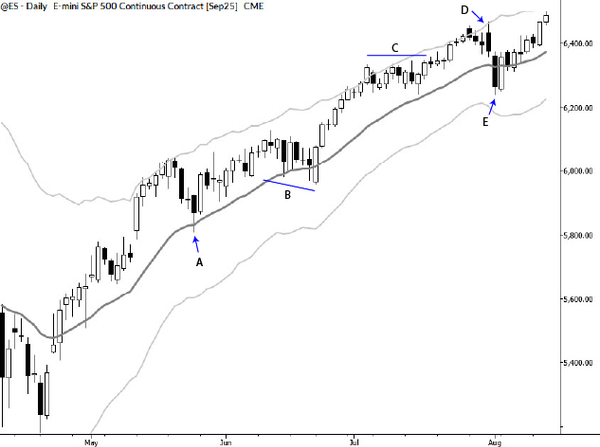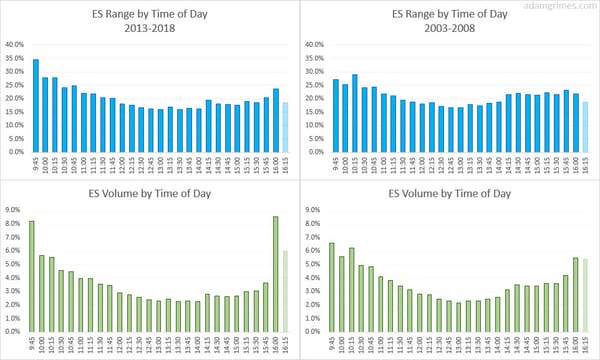The struggle: toward perfection
My recent blog generated more concern and controversy in my inbox than anything I’ve done in recent memory. Most of the messages I received were extremely well-intentioned, but, at least in my opinion, also misguided. I think this points to some fundamental principles behind mastery and hard work.
Let me share an example of one of those messages I received. A reader, Willy, wrote:
I once met an oil painting artist. and she said the most import thing to learn about being an artist was that when she put the paint on the canvas it always landed perfectly at the perfect place. that nothing must ever be changed. one must see the art in painting just the way it went on. that she as an artist could not possibly put any spot of oil paint in the "wrong spot or wrong color or wrong brush stroke etc." I suggest you are the same with music. your every note is just perfect just the way you created it.Instead of striving to play perfectly. How about accepting that you already do play perfectly. at least if you are happy with your music you are then you are successful & HAPPY. but if you fuss about your Play then you will always be a failure & remain unhappy. The difference is your CHOICE not the need to hit every note so called as memorized or whatever. In Trading you have losses and you accept those losing trades. now do the same with your music. accept it as part of your creation. your way of playing the music.
Why strive for perfection?First of all, there’s a valid point and concern here, but there’s also a misunderstanding. When I perform a piece of classical music, what is my job? To render the composition in a way that recreates the intention of the composer as accurately as possible, perhaps with some allowances for changes in taste over a few hundred years.
Second, art is communication: someone, who is probably long dust, had a thought or feeling and put dots on a piece of paper. Today, in a very different time and place, I can see these dots on paper, recreate a world of sound, and you, the listener, can have a powerful experience. This is a reason why we do these things, and, as one of my teachers said, “here we touch the Divine and the essence of what it is to be human.”
Why details matter
If I’m to perform this magic and play my part in the chain of communication, I must be able to faithfully recreate the sounds, nuances, and expressions the composer asks for. If I’m stumbling over details, then all is lost.
Technique is not a goal in itself. Technique serves. Technique allows us to communicate and to produce the exact effects we want. Technique allows us to do exactly what you suggest—to get out of the way and to create music, but getting there takes years and years of extremely hard and focused work.
Perhaps we hold ourselves to standards no one in history ever has before, and it’s entirely possible that modern performers may play better than the composers themselves. (A performer might spend much more time on a piece than the composer ever did.) Nonetheless, these are the standards: in classical music, we start at perfection.
That’s part of the journey as well: to approach, eternally and asymptotically, perfection, knowing that we will not once, in our entire lives, touch that ideal. But, if I can get as close as possible why not? Why not make my octaves faster, my double notes cleaner, my ability to differentiate and shape multiple lines of counterpoint more powerful? Why not refine my sense of plasticity and rubato, to understand the rhythms of dance and speech, and to understand the heart of the composer? Why would I happily accept being less than I can be?
The struggle
And there, I think, is the heart of the confusion. We could argue that no education is necessary to enjoy music—anyone can hear something and say “that’s pretty. I like that.” Once we learn a bit more, we learn to discriminate, and this results in “better than” and “not better than”. Ignorance is bliss (but it is ignorance!)
Speaking of struggle, and with all due to respect to your artist friend, take a look at the graphic in this post. (Click to enlarge it.) This is a page from the manuscript of Beethoven’s 9th Symphony, and it’s a fairly typical page of his work. Does this look like the work of someone who accepted that every note was perfect as he wrote it? Or is this someone working toward another ideal? Do you see the scrawls, scratches and corrections? It's not that unusual to find places where he scratched complete through the page in angry corrections, or to see him rewrite passages three or four times, to say nothing of drafts and sketches that preceded his attempt at writing down a final copy. How many hours and days were spent driving toward the perfect expression of his inspiration?
If I would perform his music, what is my responsibility?
Perfection in trading
What does this have to do with trading? A lot, I think. Trading is a discipline in which we are not likely to have any real success unless every basic element works correctly. You can’t really be successful trading if you’re good at most things except one critical skill. (This is why lists of “the most important thing” in trading are so misguided—it’s all important!)
I think you’ll have the best success if you can extend this philosophy through your trading to other aspects of life. For me, I try to carry these ideals through my cooking, my writing, my teaching, and even cleaning the kitchen and doing dishes.
It’s not a universal principle, but I think this kind of nagging dissatisfaction drives us forward to great heights. If we accept “good enough” and are happy, then we stop growing. Maybe the secret is to accept that where we are today, is good—to always seek to accept and love ourselves. (Just this morning I had a pretty good run through of Mozart’s KV 466!) But to always strive toward new heights and to always demand the best of ourselves. (… and, perhaps in a few months, I’ll be ready to play it where someone else can hear it!)
Balancing on this knife’s edge of acceptance and dissatisfaction is essential for the developing trader. If you have not yet achieved your goals and dreams, I do not want you to be happy. I want you to strive. I want you seek out errors and imperfections, with zeal and vigor, and make yourself and your trading the best you can possibly be.
Why would you be less than your best?



